Search Results
Showing results 41 to 60 of 88
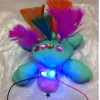
Dough Creatures
Source Institutions
In this technology activity, learners light up the room with electrifying play dough creations. Learners use conductive and insulating homemade play dough to build simple circuits.
The Right Fit
Source Institutions
In this math activity, learners trace their hands and estimate the number of beans that can fit into their hand tracings. Then, learners glue the beans to the tracing to test out their estimations.
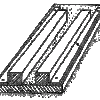
Clay Beams and Columns
Source Institutions
In this activity, learners make or use pre-made clay beams to scale and proportion. Specifically, they discover that when you scale up proportionally (i.e.
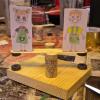
Magnetic Seesaw
Source Institutions
In this activity, learners build a seesaw powered by magnets.

Plankton Races
Source Institutions
In this two-part activity, learners investigate buoyancy, density and surface area as well as biodiversity and the relationship between the structure and function of organisms.
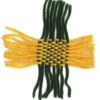
The Web of Life
Source Institutions
In this activity, learners examine ways that Native Americans of the Southwest express their relationship with nature through art.
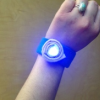
High Tech Fashion
Source Institutions
In this technology activity, learners build simple circuits, design soft circuits using conductive thread, and then sew switch-activated circuits.

Macchia Madness
Source Institutions
In this activity, learners explore the history of making objects from glass and artistry of Dale Chihuly.

Slimy Cells
Source Institutions
In this activity, learners solidify their conceptualization of cells by building a model of a cell in a ziplock bag.
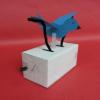
Cranking Bird
Source Institutions
In this activity, learners build a mini crank machine to make a bird "fly." This engineering activity introduces learners to automata, rotational motion, cranks and cams.
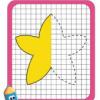
Symmetry Fold-Overs
Source Institutions
In this math activity, learners experiment with the concept of symmetry.

Invent a Plant
Source Institutions
In this activity, learners construct models of plants that are adapted to living under specific environmental conditions.

Design a Fish
Source Institutions
In this activity (page 2 of PDF under GPS: Alligator Habitat Activity), learners will study the adaptations different fish species have developed to survive in their habitats.
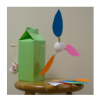
Wind Works!
Source Institutions
Learners will build and experiment with their own windmills made from simple household materials.
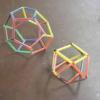
Geometry Construction: Polyhedral Playthings
Source Institutions
In this activity, learners create 3D geometric shapes using straws and pipe cleaners.
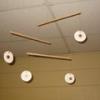
Rotational Equilibrium
Source Institutions
In this activity, learners explore the concept of rotational equilibrium. Learners work in teams to estimate and determine the force within a mobile design.
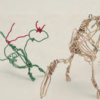
Make a Dinosaur
Source Institutions
In this activity, learners explore the size and scale of dinosaurs. Learners listen to "Dinosaurs, Dinosaurs" by Byron Barton to understand some background information about dinosaurs.
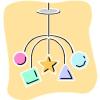
Make a Mobile!
Source Institutions
In this activity, learners make mobiles to explore the concepts of balance, counterbalance, weight, and counterweight.
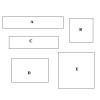
Geometry and Spatial Relations: It's a Perfect Fit
Source Institutions
In this three-part math activity, learners explore shapes. In part one, learners identify, describe, and classify two-dimensional shapes.

Size, Scale and Models
Source Institutions
In this activity, learners take measurements and create charts to learn about the size of dinosaurs and their relative scale to humans.
